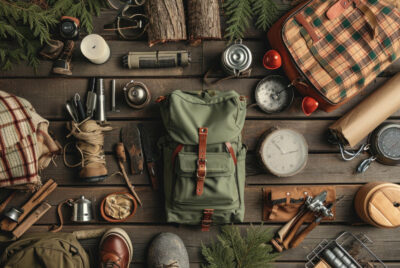Solo Camping
Picture this: You’re standing alone in a pristine wilderness, surrounded by towering trees, the gentle rustling of leaves, and the kind of silence that speaks volumes. No distractions, no compromises, just you and the great outdoors. Welcome to the world of solo camping—an experience that’s part adventure, part self-discovery, and entirely life-changing.
Why Solo Camping is More Than Just a Getaway
The Unparalleled Freedom of Solitude
Solo camping isn’t just a trip; it’s a personal revolution. Imagine having the absolute freedom to design your adventure exactly as you want it. No negotiations, no group dynamics, no compromising on hiking trails or campsite locations. You are the master of your wilderness journey.
When you camp alone, every moment is yours to craft. Want to wake up at sunrise and watch the world come alive? Do it. Feel like spending hours sketching the landscape or reading a book by the campfire? Absolutely. Solo camping strips away the external noise and allows you to reconnect with yourself in ways you never thought possible.
A Journey of Self-Discovery and Personal Growth
There’s something magical that happens when you’re alone in nature. Every challenge becomes an opportunity for personal growth. Setting up a tent, starting a fire, navigating through unfamiliar terrain—these aren’t just survival skills; they’re confidence-building experiences.
Each successful task reinforces your capabilities. You’ll discover strengths you never knew you possessed. The self-reliance you develop isn’t confined to the campsite; it bleeds into every aspect of your life. Solo camping teaches you that you’re more capable, resilient, and adaptable than you ever imagined.
Deep Connection with Nature
In our hyper-connected digital world, true solitude is rare. Solo camping offers an antidote to constant notifications and digital overwhelm. When you’re alone in nature, your senses awaken. You hear the subtle sounds of wildlife, feel the nuanced changes in temperature, and observe details you’d typically miss.
The silence isn’t empty—it’s full of life. Birds chirping, leaves rustling, distant animal calls. You become an observer, a part of the ecosystem rather than a mere visitor. This deep connection can be profoundly therapeutic, offering a reset that no spa or weekend getaway can match.
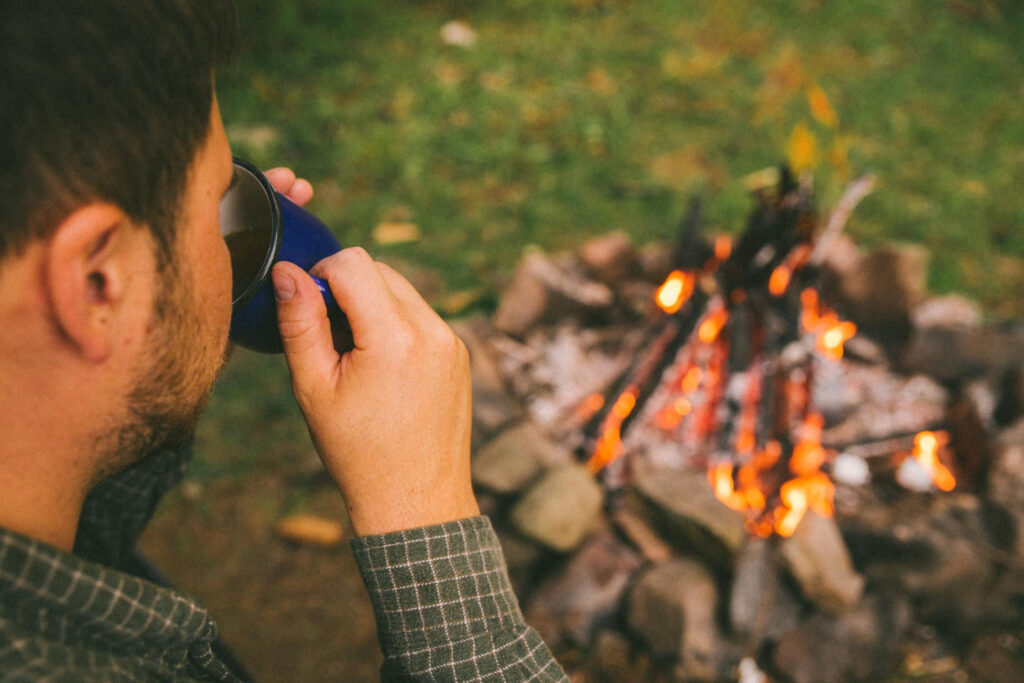
Essential Solo Camping Safety Tips
Choosing the Right Campsite: Safety First
For first-time solo campers, choosing the right location is crucial. Here’s a breakdown:
Established Campgrounds: The Beginner’s Best Friend
- Facilities like bathrooms and water sources
- Nearby campers provide a sense of security
- Easier access and navigation
- Rangers or staff on-site for emergencies
Remote Sites: For the Experienced Adventurer
- Complete solitude
- Requires advanced survival and navigation skills
- No immediate help available
- Demands thorough preparation
Pro Tip: If you’re new to solo camping, start with established campgrounds. As you build confidence and skills, you can gradually explore more remote locations.
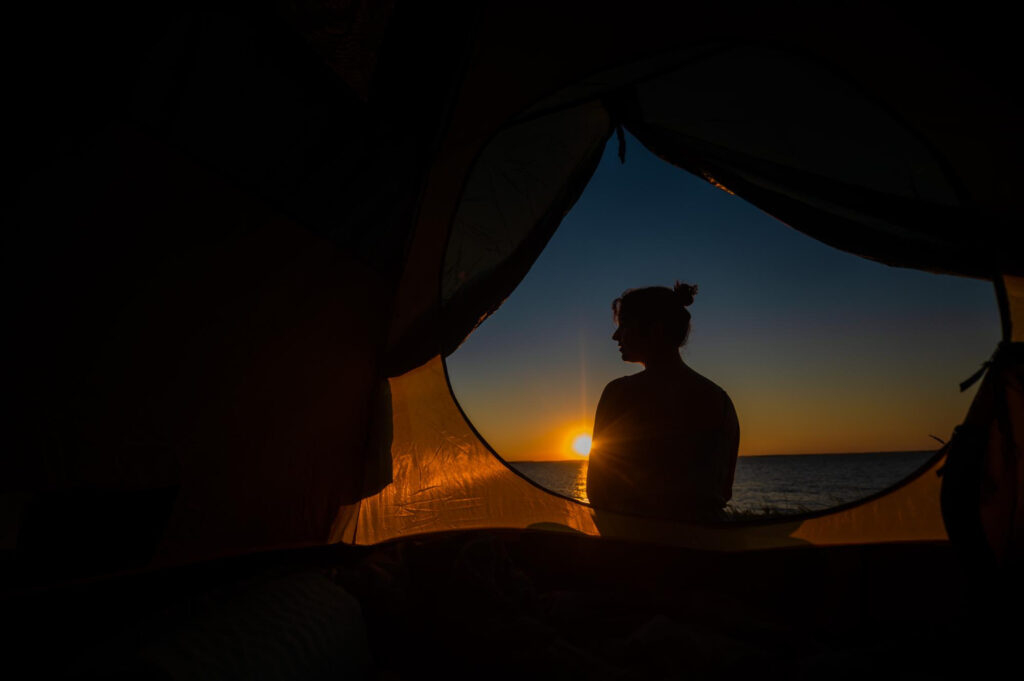
Pre-Trip Preparation: Your Safety Starts Before You Leave
Inform Your Support Network
Never head out without letting someone know your detailed plans. Share:
- Exact campsite location
- Expected return date
- Planned check-in times
- Your route and potential alternative routes
Consider using location-sharing apps or leaving a physical itinerary with a trusted friend or family member.
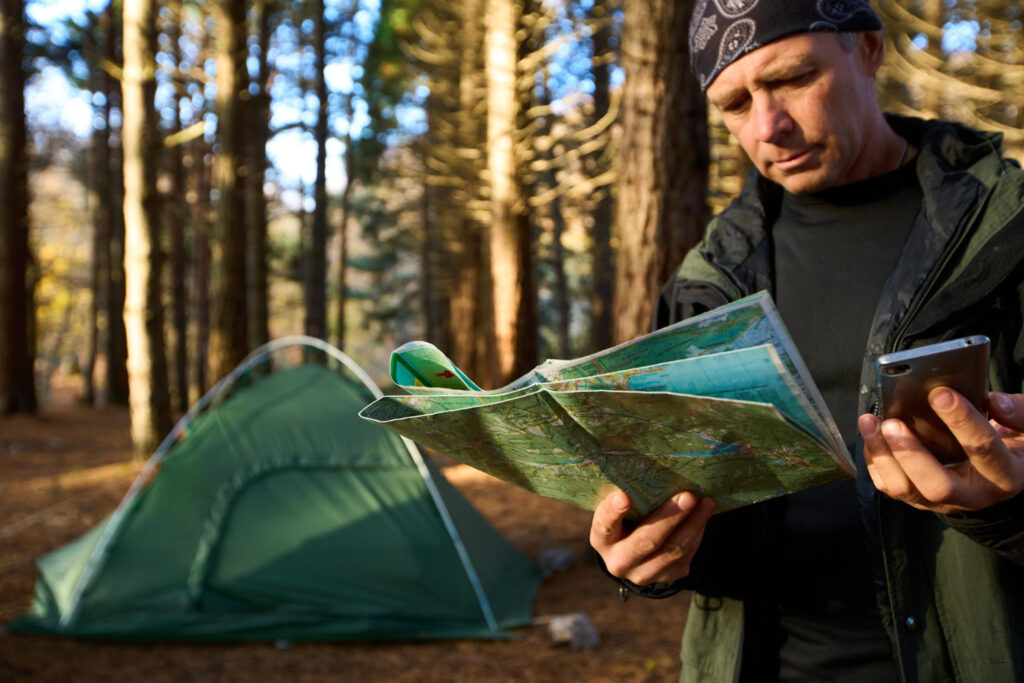
Essential Gear: Your Wilderness Survival Kit
Your gear can make the difference between a memorable adventure and a potential disaster. Here’s a comprehensive checklist:
Emergency Essentials
- Comprehensive first aid kit
- Multi-tool or sturdy knife
- Headlamp with extra batteries
- Fire-starting materials (waterproof matches, lighter, fire starter)
- GPS device and physical map/compass
- Extra non-perishable food
- Water purification method
- Emergency whistle
- Signal mirror
- Portable battery charger
- Weather-appropriate clothing layers
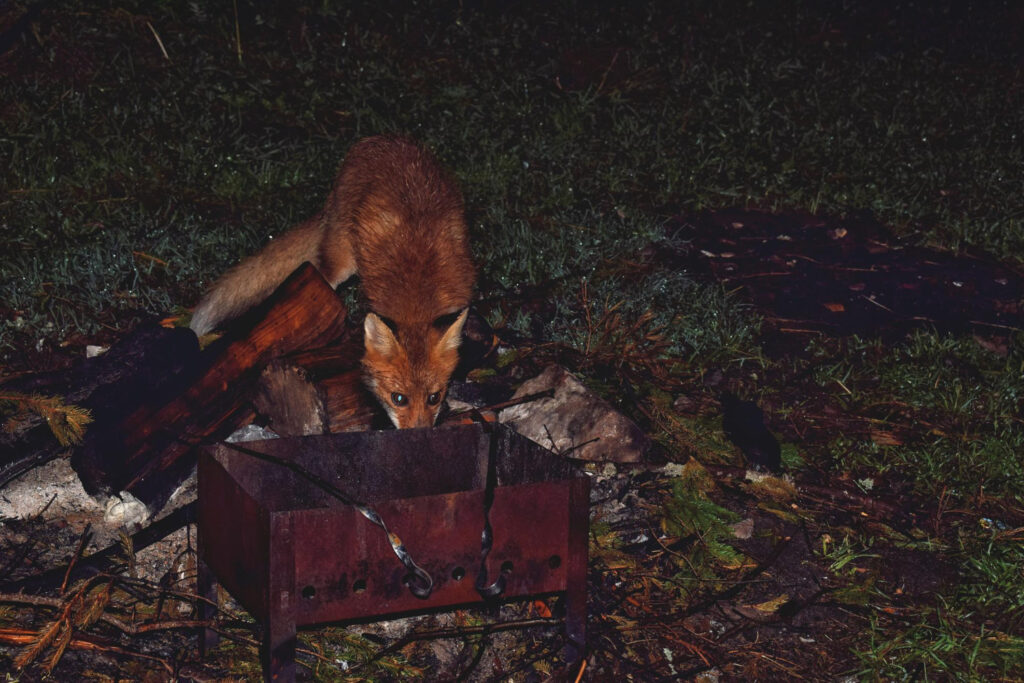
Wildlife and Personal Safety Strategies
Understanding and Respecting Local Wildlife
- Research the animals in your camping area
- Learn proper behavior during wildlife encounters
- Carry appropriate deterrents (like bear spray in bear country)
- Understand animal behavior and warning signs
Food Storage: Keeping Wildlife at Bay
- Use bear-proof containers
- Hang food at least 12 feet off the ground
- Store food away from your sleeping area
- Never keep food inside your tent
Personal Safety Tactics
- Trust your instincts
- Carry a personal alarm or whistle
- Avoid sharing specific location details with strangers
- Stay aware of your surroundings
- Have a communication device (satellite phone or emergency beacon in remote areas)
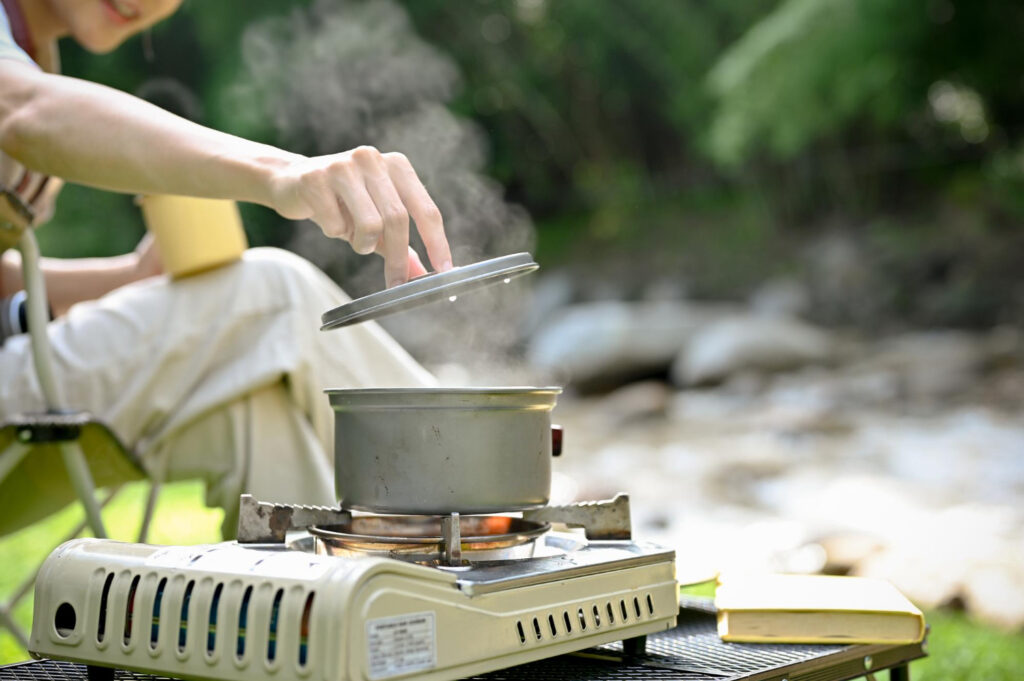
Fire Safety and Cooking Tips
Campfire Safety
- Choose a clear area away from overhanging branches
- Keep water or sand nearby for emergencies
- Never leave fire unattended
- Completely extinguish before sleeping or leaving
Solo Camping Cooking
- Opt for lightweight, easy-to-prepare meals
- Use a portable camping stove for reliability
- Bring dehydrated meals and one-pot recipe options
- Pack energy-dense, nutritious snacks
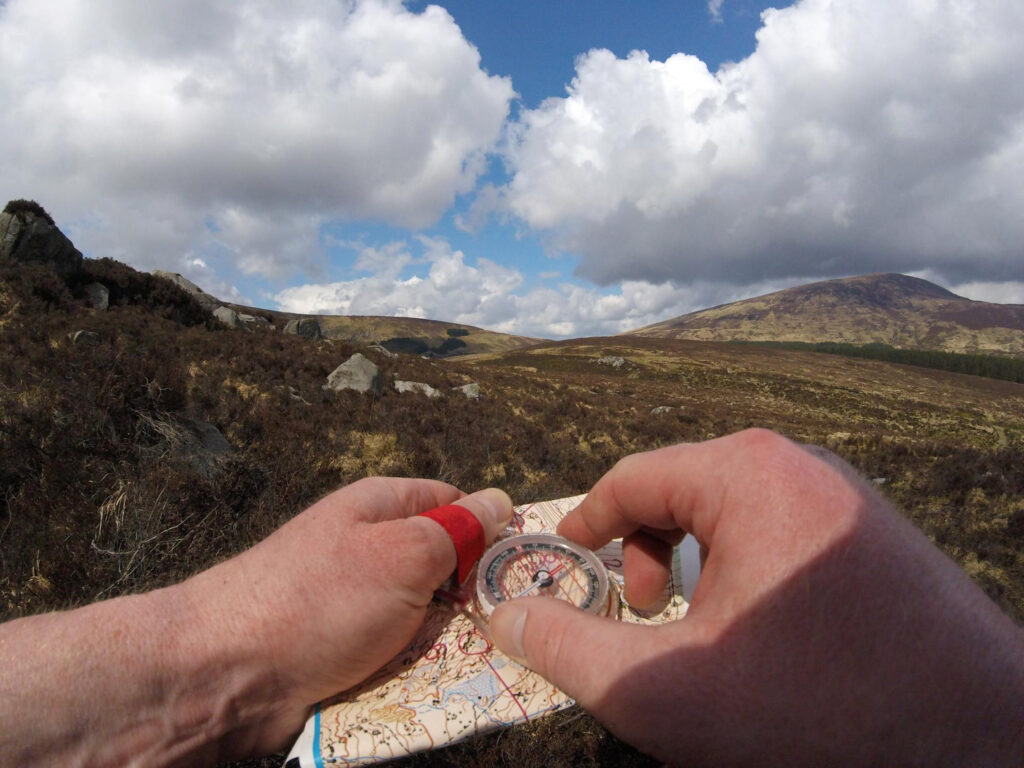
Navigation and Emergency Preparedness
Master Traditional Navigation
- Learn map and compass skills
- Don’t rely solely on electronic devices
- Practice navigation techniques before your trip
The STOP Method if You Get Lost
- Stop – Don’t panic or wander
- Think – Assess your situation
- Observe – Look for landmarks or signs
- Plan – Determine best course of action
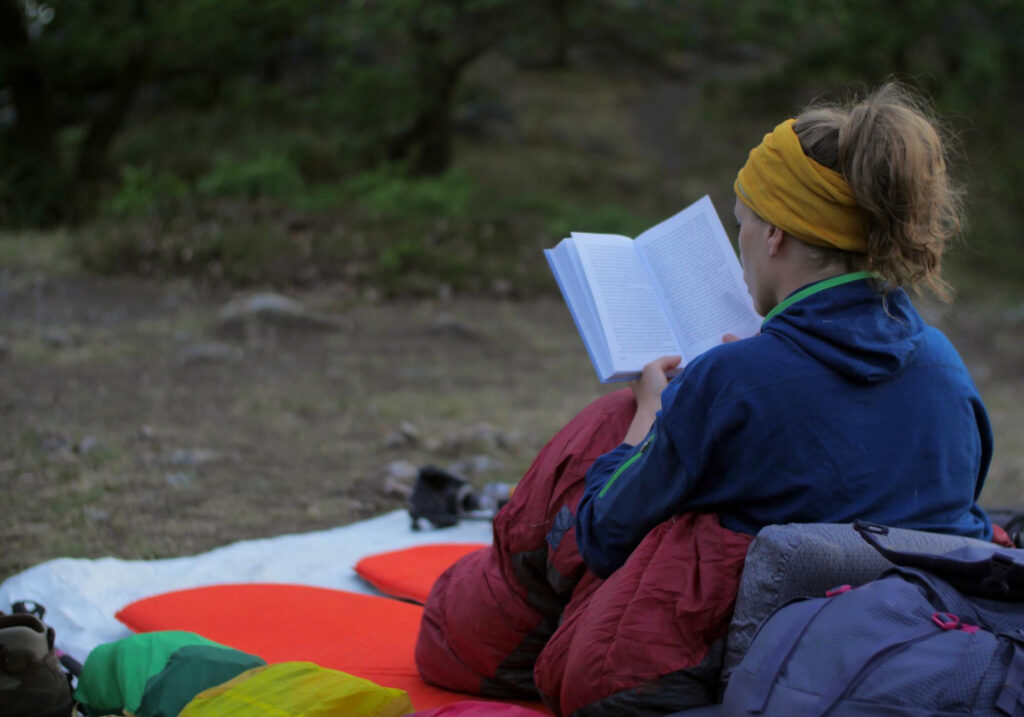
Mental Preparation: Conquering Solitude and Fear
Overcoming Solo Camping Anxiety
- Start with short trips
- Bring comfort items (journal, book, camera)
- Practice mindfulness
- Prepare mentally by visualizing successful scenarios
Keeping Yourself Engaged
- Bring a journal for reflection
- Pack a good book
- Carry a camera to document your journey
- Practice meditation or nature photography
- Bring lightweight, packable games or activities
Frequently Asked Questions
Q: Is solo camping safe for beginners? A: Yes, with proper preparation, research, and by starting in established campgrounds.
Q: What’s the best first-time solo camping location? A: Choose a well-maintained campground with amenities and nearby staff or other campers.
Q: How do I handle emergencies when camping alone? A: Stay calm, use your emergency gear, have multiple communication methods, and always let someone know your plans.
Q: What are the most critical safety items? A: First aid kit, communication device, navigation tools, emergency food/water, fire-starting materials, and appropriate clothing.
Final Thoughts…
Solo camping is more than an outdoor activity—it’s a transformative experience. It challenges you, heals you, and reconnects you with your inner strength. Every solo trip is a story waiting to be written, a personal challenge waiting to be conquered.
Start small, prepare thoroughly, and embrace the journey. The wilderness isn’t just a destination; it’s a teacher, and you’re about to become its most eager student.
Remember: Nature doesn’t judge. It simply invites you to explore, grow, and discover.




